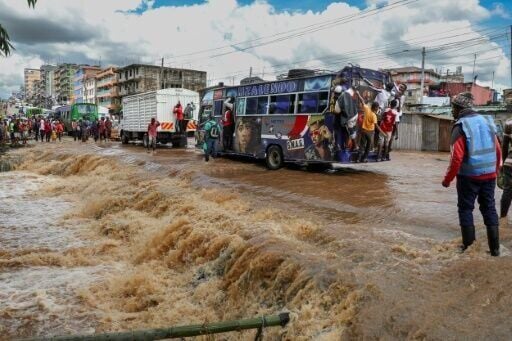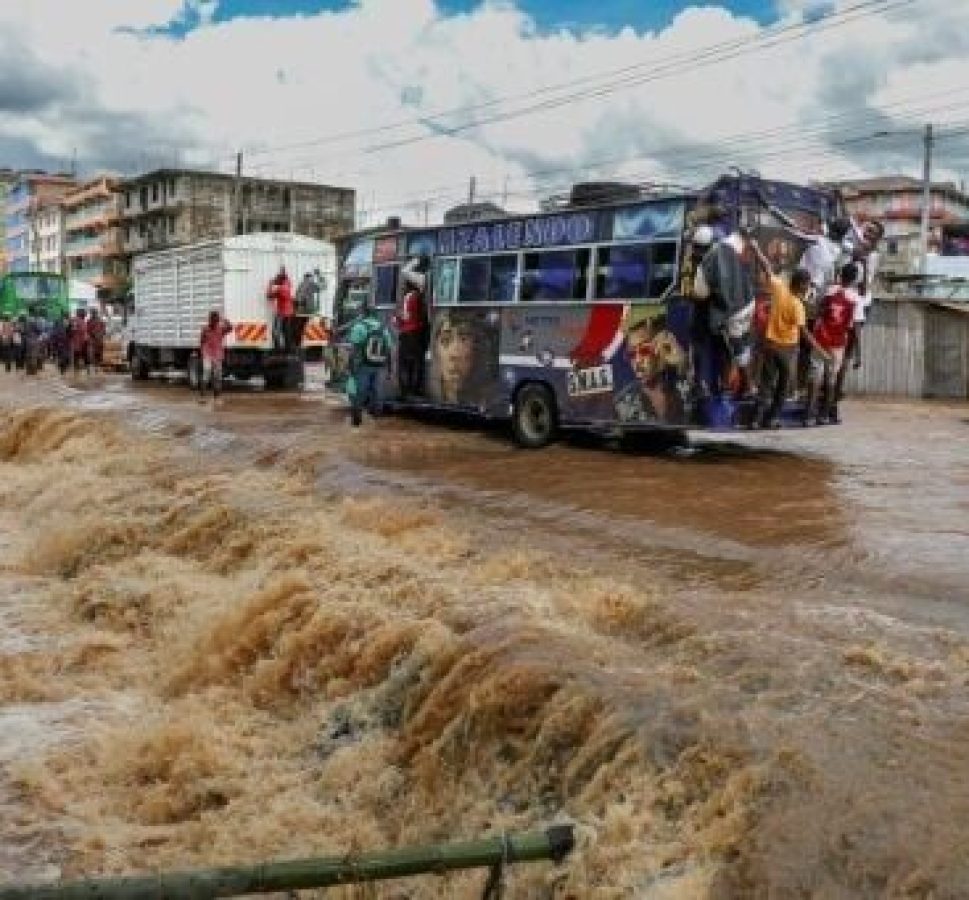
People killed in southern town of Mai Mahiu as heavy rains and floods pound areas across the country.
More than 40 people have been killed in Kenya after a dam burst, pushing the death toll from devastating floods in East Africa to more than 120.
The deaths were reported on Monday in the Mai Mahiu area, where the burst dam added to casualties from flash floods.
“We have so far recovered 42 bodies, which include 17 minors, following the early morning incident where a dam burst its banks in Kijabe area and rescue and search operations are going on,” police at the site in Mai Mahiu said.
The rains have filled hydroelectric dams to capacity, threatening a massive downstream overflow, a government spokesperson warned.
Earlier on Monday, the Kenya Red Cross said it had taken several people in the area to a health facility due to flash flooding.
Kenyan authorities are struggling to cope with chaotic conditions. Heavy rains have been lashing East Africa in recent weeks as the El Nino weather pattern exacerbates seasonal rainfall.
On Saturday, government figures showed 76 people had been killed and more than 131,000 displaced. The floods have destroyed roads and bridges across the nation.
A road underpass at the international airport in the capital, Nairobi, was flooded, but flights were running as usual, the Kenya Airports Authority said on Sunday.
The government on Monday delayed the start of a new school term by a week.
“The devastating effects of the rains in some of the schools is so severe that it will be imprudent to risk the lives of learners and staff before water-tight measures are put in place to ensure adequate safety of all affected school communities,” the Ministry of Education said.
Earlier this month, the Kenya Meteorological Department warned that “heavy to very heavy” rainfall was forecast in various parts of the country until May.

Elsewhere in the region, nearly 100,000 people have been displaced in Burundi while at least 58 people have died in Tanzania and several thousand made homeless.
East Africa was hit by record floods during the rainy season in late 2023. Scientists said climate change is causing more intense and frequent extreme weather events.






